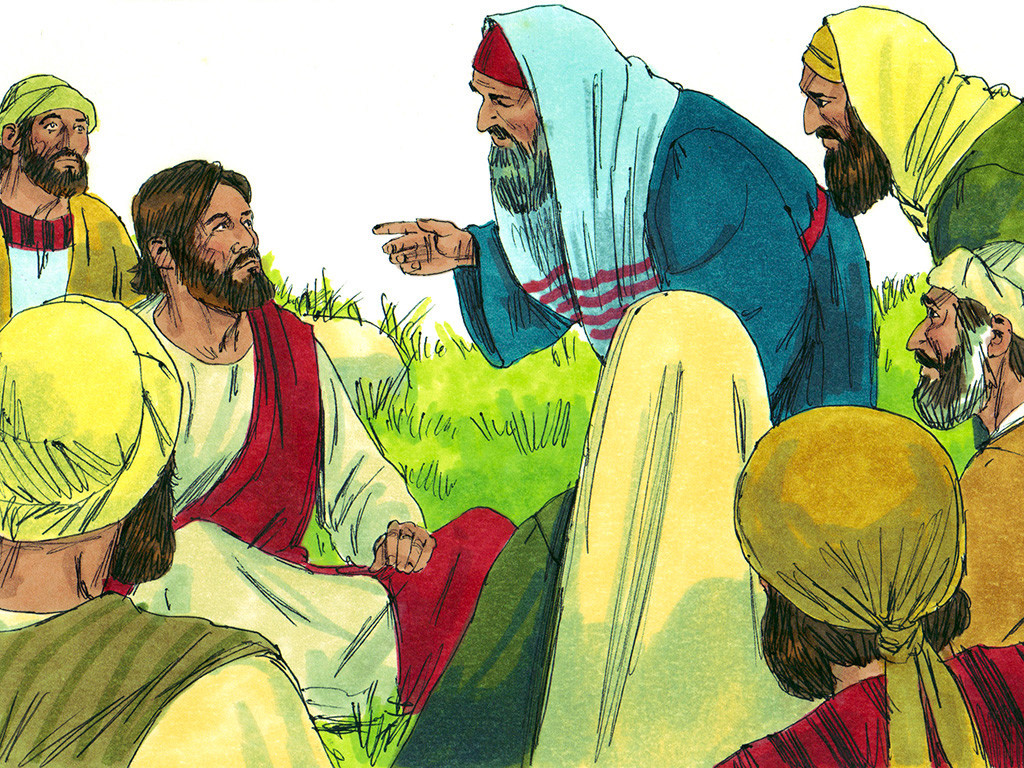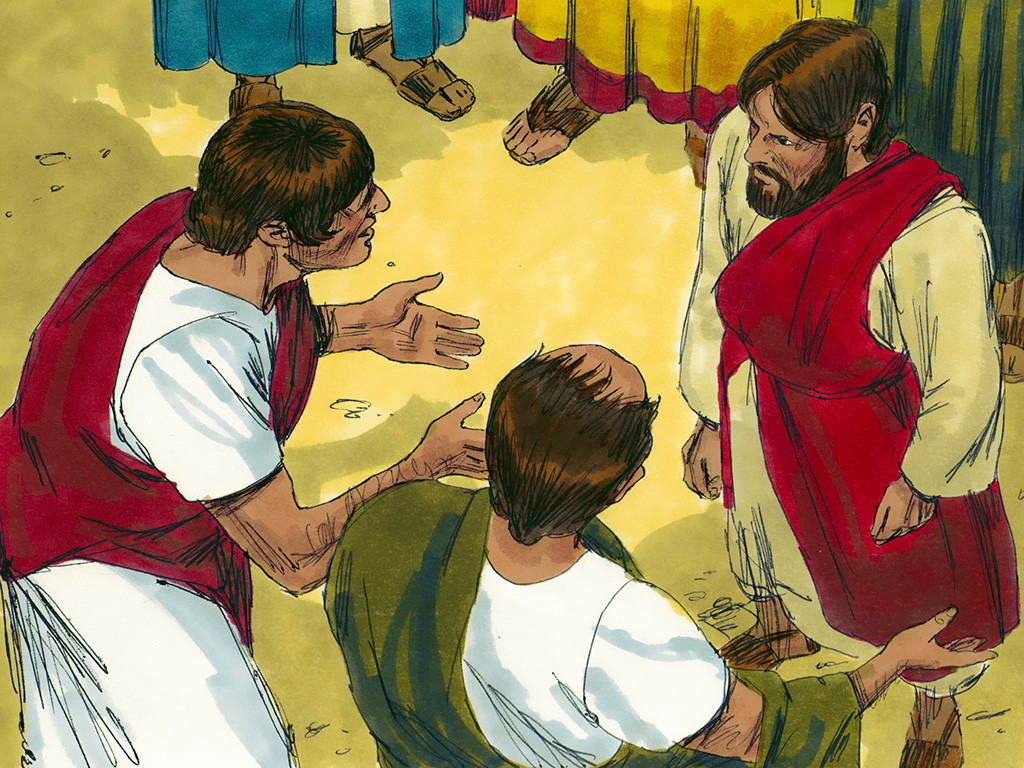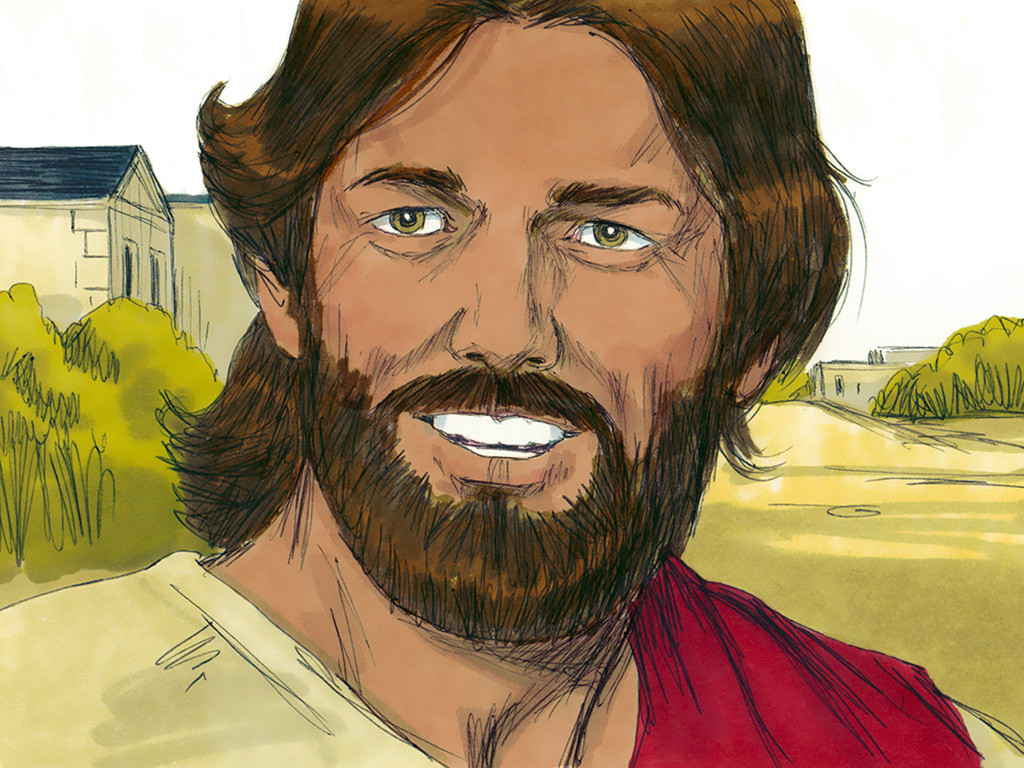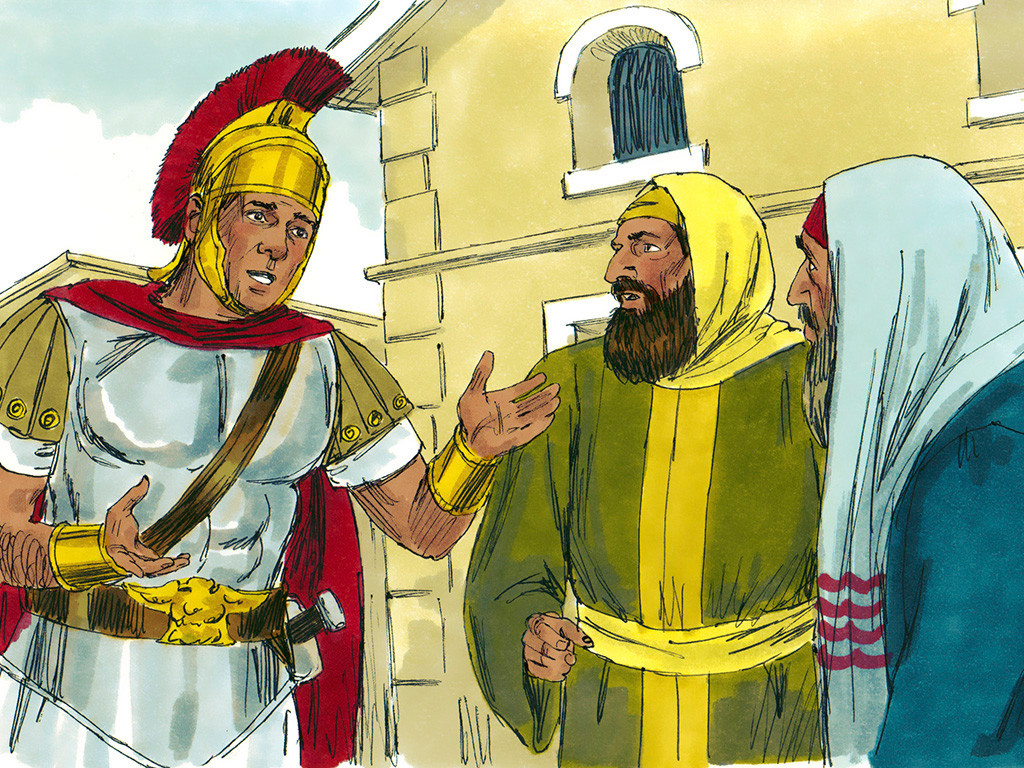

Jesus heals Centurion’s servant? As this story spread, there were likely many in Israel horrified at the notion. This unnamed Roman commander was wealthy, powerful, and connected. But none of that helped get his servant healed. He was also compassionate, loved the Jewish people, and treated folks of all backgrounds with respect. For this reason, even the Jewish leaders of that area vouched for him. But that was not what got Jesus’ attention, or got his servant healed.
He watched helplessly as his servant was tormented by paralysis, getting worse every day. Hope was all but gone until he heard of a man named Jesus. People were referring to Him as a Teacher and calling Him Master. And more importantly, He was casting out evil spirits and healing folks. This was the hope the Centurion needed. When he finally met Jesus, the Centurion was humble and direct. There was no need for Jesus to come to his house. For the Centurion knew that all he needed was to hear the Word, and he would believe. This impressed Jesus so much he publicly praised the Centurion’s faith, a Gentile and a Roman. Jesus loved him and said, “Go thy way; and as thou hast believed, so be it done unto thee.“
Scroll down to learn more about Jesus healing the Centurion’s servant, and find links to other free online resources based on this miracle. And as you study this, remember that neither Jesus or His Word ever changes. They are the same yesterday, today, and forever! (Hebrews 13:8)
Jesus healing the Centurion’s servant miracle is found in Matthew 8:5-13 and Luke 7:1-10. Both accounts complement each other. They can be studied together, or separately.

How would you like to have faith that impresses God? That was the case with the Centurion who sought out Jesus to heal a beloved servant. There were a plethora of factors that could have kept them from ever meeting – the Centurion’s pride, cultural and national customs, and of course their religious traditions. But the Centurion’s servant was “grievously tormented” and “sick of the palsy” – he was determined to do whatever it takes to get the boy healed. And his bold faith impressed Jesus, who made sure he received exactly what he believed.
A Centurion is a commander of 100 men. People often wonder why there would be such a large garrison in, or near Capernaum, a fishing village of about 1,500 at the time of Jesus. The answer is quite simple. Capernaum was a very prosperous village. It was at the Northeast border of Israel and on the Via Maris, a main North-South trade route through Israel, connecting Egypt, Anatolia, and Mesopotamia. Matthew the tax collector, and future disciple of Jesus lived there. As you can imagine, large sums of taxes were collected, and much wealth came through the area. It was critical that every caravan made it safely through, without being harassed by bandits, zealots, or even foreign agents. The garrison at Capernaum was there to keep the peace, protect the tax revenue, and make sure trade continued to flow without incident.
Caravans traveling the Via Maris paid tolls and taxes, which were enforced by a Centurion, and his soldiers stationed nearby, who kept the peace. Along with fishing, Capernaum was known for its basalt grinding stones. All of this made the village prosperous. The location, and the high traffic, explains the rapid spread of Jesus’ fame in the area.

The Centurion may have been wealthy before being stationed in Capernaum, but with so much prosperity flowing through the village, it certainly did not decrease his personal fortune. This can be confirmed by the testimony of the Jewish leaders, who told Jesus, “he loves our people and built our Synagogue.” Some may assume his wealth was from malfeasance. His character in the narrative says otherwise. It is my belief that he tapped into the Blessing, and as he was sowing seed (building the Synagogue), God was giving him a mighty harvest. (Genesis 12:1-3, Proverbs 10:22, Luke 6:38) His appreciation for Jews, and especially their God, was likely the result of experiencing God’s Mercy firsthand. And it certainly influenced his faith in Jesus.
The Centurion likely had many servants, but he was especially fond of one boy. Rome forbid their soldiers from getting married until after their service was complete – they wanted them focused on fighting. But having lovers, and even children out of wedlock, was not out of the realm of possibility. Matthew has the Centurion claiming his child (Pais – G3816) was sick. In fact, he uses this word twice. Yet it could mean boy, or servant, or child. In Luke, he uses another word (Doulos – G1401), which means servant or slave. Although he does also use Pais once. A young servant boy makes the most sense. Could it be the Centurion’s son? Perhaps, but I go back to the character of the Centurion. He would seem by the narrative to be someone who follows the rules. And as a compassionate man, simply had a deep concern for those who served him. And his servants respected him and recognized his authority. If I say to my servants, Do this. They do it. (Luke 7:8) The obvious answer is usually the best. A young servant was like a son to him. And seeing him suffer was too much. He would do whatever it takes to get the boy healed.
In Luke’s version, the Jewish leadership is sent to Jesus first to vouch for the Centurion. Their evidence included that the Centurion provided funds to build the local Synagogue, and that he loved the Jewish people. This was quite unusual for Roman officers, and it was certainly unusual for Jewish religious leaders to praise Gentile military men. But none of that moved Jesus. He was willing to heal anyone who desired to be set free. You don’t earn healing through good works. More often, good works are the result of a transformed life. Experiencing God’s Mercy will often give you the desire to serve Him, and once empowered by Him, you can successfully do the good things He has planned for your life. (Ephesians 2:1-10)

3 When the officer heard about Jesus, he sent some respected Jewish elders to ask him to come and heal his slave. 4 So they earnestly begged Jesus to help the man. “If anyone deserves your help, he does,” they said, 5 “for he loves the Jewish people and even built a synagogue for us.”
Luke 7:3-5 NLT
Jesus did everything according to the Father’s Will. So the Jewish leaders influence, although nice, does not really factor into this miracle. (John 6:38-40) Jesus goes where the Father sends Him, and on this day, He had an appointment with someone who had great faith. It is impossible to please God without faith! (Hebrews 11:6)
Jesus finally meets the Centurion. He is humble, honest, and direct, even calling Jesus “Lord” – this was not some meaningless title. By saying this, the Centurion was rejecting his former pagan gods and affirming his submission to Jesus. He was acknowledging both the deity and supremacy of Jesus in the universe. And when someone called Jesus Lord, it was often by revelation. We don’t know his worship habits or what he believed, but his love and gifts seem to indicate an interest in the God of Israel. It is possible he developed a relationship with the Father even as a Gentile. A later example of this is Cornelius and his household. (Acts 2)
6 And saying, Lord, my servant lieth at home sick of the palsy, grievously tormented. 7 And Jesus saith unto him, I will come and heal him. 8 The centurion answered and said, Lord, I am not worthy that thou shouldest come under my roof: but speak the word only, and my servant shall be healed. 9 For I am a man under authority, having soldiers under me: and I say to this man, Go, and he goeth; and to another, Come, and he cometh; and to my servant, Do this, and he doeth it.
Matthew 8:6-9 KJV

Being a military officer, the Centurion had a deep understanding how authority worked. He told a soldier or servant to do something, and they did it. There was no argument or debate. It was simply a chain of command, and he was above them. Of course, he was obedient to those who outranked him, and carried out their orders. To him, why would religion be different? Jesus clearly was at, or very near, the top of the chain of command – the Centurion reasoned. Jesus clearly had authority. So all he needed was a Word to believe. If Jesus spoke the Word, his servant would be made whole. Why would anyone doubt Jesus? No Word from God will ever fail. (Luke 1:37)
Jesus set aside His authority temporarily to become as we are, human. He operated as a man, anointed by the Holy Spirit, carrying out the will of the Father on Earth. (John 8:28-29, Philippians 2:5-11, Hebrew 2:5-18) After Jesus’ resurrection, He was restored to his former glory. In one resurrection appearance Jesus said, All authority on Heaven and Earth has been given to me. He then delegated that power to His Body. (Matthew 28:18-20, John 17:1-26, Ephesians 1:15-23, Colossians 1:9-20)
As Jesus approached the Centurion’s home, he and his friends stopped Jesus. The Centurion said, Just say the word, and my servant will be healed. Most doctors, shamans, and mystics insist on seeing the patient. They may even put on an elaborate show as part of their practice. But that is not how faith works. Faith is not limited by distance or time. What you believe in your heart, you speak with your mouth. Or a better way to understand, what you say and hear are like seeds you are planting in your spirit. If you hear God’s Word, you are planting Good Seed. But you can also hear doubt and unbelief, which undermines faith. The Centurion recognized Jesus’ authority, and knew that His Word was Truth. If Jesus spoke the Word, his servant would be made whole. (Mark 4:26-29, John 15:7, Romans 10:17

10 When Jesus heard him, He marveled and said to those who followed Him [who adhered steadfastly to Him, conforming to His example in living and, if need be, in dying also], I tell you truly, I have not found so much faith as this with anyone, even in Israel.
Matthew 8:10 AMP
Jesus marveled at this profound confession of faith. The Centurion was a Gentile and a military officer. But he understood power and authority, and knew that Jesus had both. All he needed was a word from Jesus and his servant would live! Faith is the substance, or title deed, of the things hoped for, the proof of their reality. And faith is always NOW. It is in the present. The Centurion didn’t need confirmation. He did not rush home to “see if it worked”. On the contrary, he went home full of joy, KNOWING his servant was made whole. And that was what he discovered when he arrived. It is our faith that pleases God. Nothing is impossible with God. (Mark 11:21-25, Luke 1:37, Hebrews 11:1-6, James 1:2-8)
While the Centurion’s faith impressed God, the lack of faith among the people of Israel was disappointing. Jesus said, I haven’t seen faith like this in all Israel. That was a strong rebuke with the Jewish leaders standing right there. If they were offended, nothing is recorded in Scripture. But consider the nature of the accusation. The whole nation of Israel had been waiting centuries for their Messiah. And here was Jesus, healing the sick, casting out demons, sharing Godly Wisdom, and the majority of His people did not recognize God in their midst. And the religious leadership, those who studied Scripture, wanted to kill Jesus. Religious folks sometimes do crazy things. Stay in the Word, believe what it says, and acknowledge Jesus in everything you do. The Word is ALIVE. And Believers are IN CHRIST. Without Him, you can do nothing. (Proverbs 3:1-5, Luke 22:1-2, John 15:1-27, Romans 11:1-36, Ephesians 2:1-22, Hebrews 4:12-13)
Some people have attacked the veracity of this miracle pointing out the differences between Matthew’s version and Luke’s version. In situations like this, always consider the alternatives. Depending on the timing and setting, it could be possible to have two Centurions that had sick servants. That does not seem to be the case here, but it could happen.
The Holy Spirit moved Matthew and Luke to record the story that would best resonate with their respective audience. Some details might be in one, yet absent from another. Together, they should complement one another. Such is the case here. Luke’s account comes first. He sends Jewish elders who first ask Jesus to come to Capernaum, then as Jesus approaches, the Centurion goes with his friends. The change in verbs in Luke 7 is the clue.
E. W. Bullinger notes, in Luke 7:3 it is the verb sent (Apostello – G649), which means to send away from, the sender remaining behind. This is when he sends “the elders of the Jews.” In verse 6, the Centurion “sent friends,” but here it is the verb sent (Pempo – G3992), which means to send with, the sender either accompanying or sending an escort. Both words are used together in John 20:21. The two accounts merge when the Centurion addresses Jesus, and Jesus acknowledges his outstanding example of faith. I believe the Centurion addressed Jesus directly, and Jesus addressed the Centurion when He said, Go thy way; and as thou hast believed, so be it done unto thee.
The Centurion rose through the ranks by learning obedience. He heard the words of an officer and he immediately obeyed them. When he was placed in charge, and now had the authority, his men and servants immediately did what they were commanded to do. He had a very good understanding of the power of words and authority. That may not come naturally to a civilian living in the 21st century. Words are largely meaningless to folks in this age. So if you want to impress God with your faith, start by taking every word you speak seriously. Never speak doubt, unbelief, or what you don’t want to happen. As the Bible says, All you need to say is simply ‘Yes’ or ‘No’ anything beyond this comes from the evil one. Don’t believe your doubt, and doubt your unbelief. (Proverbs 10:11-14, Matthew 5:37, Ephesians 4:29, Philippians 4:4-9, James 1:5-8)
You must know in your heart that God’s Word is TRUTH. And faith comes from hearing, and hearing by the Word of God. Learn to speak God’s Word often, sowing that Good Seed into your heart. You can trust His Word, even more than a doctor or lawyer. Listen for the guidance of the Holy Spirit, and the still small voice of God. His Sheep Hear His Voice! Eventually, when you speak God’s Word, it will be just like Jesus is there speaking it for you. You can have confidence in your prayers and your Words changing your world for the better. (Mark 4:3-20, John 10:10-16, 17:13-21, Romans 10:17)
Go thy way; and as thou hast believed, so be it done unto thee. – Jesus
From Matthew 8:13

In Matthew’s Gospel, Jesus’ first three miracles provide an interesting preview of what is to come. The first miracle is a leper, a Jew, who believes that Jesus has the power to heal him, but only questioned if it was His will. Jesus answered the question in the affirmative, and with a touch, the leper was made clean. Jesus then instructed the man to tell nobody, but present himself to the priest as evidence of being free from leprosy. This would fulfill the Law, and the miracle was a Messianic sign that the priests should recognize. (Leviticus 14:1-32, Matthew 8:1-4)
The second miracle, Jesus heals the Centurion’s servant. He was Gentile, and his slave was healed, but not by touch. Instead, the Centurion’s remarkable faith only asked to hear the Word from Jesus. The slave was healed remotely, without Jesus’s presence or touch. Jesus performed a similar miracle for the daughter of a Syrophoenician mother in Matthew 15:21-28. Contrast the Centurion’s behavior with that of another Gentile military leader, Naaman the Syrian. He wanted a big show from Elisha, and bristled at the idea of dipping 7 times in the Jordan to healed of leprosy. The Centurion simply wanted to hear the Word and He believed. (2 Kings 5:1-19, Matthew 8:5-13)
In the third miracle, Jesus was in Peter’s house and found his Mother-in-law in bed sick. Jesus merely touched her, and the fever immediately departed. She immediately got out of bed and served them. (Matthew 8:14-15)
How are these connected? Pharisees often thanked God that they were not born (1) a Gentile, (2) a Slave, or (3) a Woman. And the religious had plenty of rules that kept them separate from others, especially those considered unclean. But IN CHRIST, that isolation ends. As Paul writes, there is neither Jew or Gentile (Centurion), slave or free (Servant), male or female (Mother-in-law) in the Body of Christ. And by touching the leper and the woman, Jesus put away the notion of uncleanness, and any separation required by religion. This was further confirmed by Peter’s vision and meeting the family of Cornelius. (Acts 10:28, 11:1-18)
Consider the order of the miracles, which vary slightly compared to the other Gospels. Why did the Holy Spirit direct Matthew to place them in this order? It seems to be a dispensational preview.
The Jewish leper was healed, and sent to the priests to confirm he was now clean. the religious leaders should have identified this as a miracle and a sign of the Messiah. At the very least, they should have investigated the miracle with an open mind. But the majority very quickly dismissed Jesus, some even desiring to kill him, for fear He would disrupt the status quo. They were comfortable with their power and wealth, and having the Roman army nearby, made their positions all the more secure. They did not want anyone, or any movement to rock the boat. So Israel rejected their King, Jesus. (Matthew 12:9-14, Mark 3:1-6, John 1:11-13, 8:56-59, 10:27-36)
After Israel rejects Jesus, Paul, and others, carried the Gospel of Grace to Gentiles and they joyfully received it. Jesus was no longer on Earth, so he was no longer able to minister in the flesh. Instead, miracles were by faith, and remotely. During this time, Israel was set aside, and the time of the Gentiles continues. But those to whom the Kingdom should have belonged are cast out into outer darkness. The Centurion believes the Word of Jesus, and his servant is healed! (Matthew 8:12, Acts 18:1-10, Romans 11:1-36)
Which brings us to the final miracle, Peter’s Mother-in-law. In Matthew’s account, nobody even asks Jesus to heal her. No disease is even mentioned, just a fever. Jesus heals her and she immediately serves Him. The word house is interesting, as in the House of Israel. This represents a time in the future when Israel will truly be a light to the nations as promised. The remaining chapter is interesting – as Jesus heals many, stills a storm, and casts out demons. (Isaiah 49:6, Ezekiel 36:22-36, Acts 2:36)
A Roman Centurion’s faith – Matthew 8:5-13 – Luke 7:1-10
Check out all the wonderful Christian content linked below and learn more about this miracle.
Healing the Centurion’s Servant – A very brief easy-to-read version of the story
The Centurion & Faith That Impresses God – The story of Jesus healing the Centurion’s servant.
The Centurion’s Faith – Jesus heals a Centurion’s servant.
Jesus Heals the Roman Centurion’s Servant – A short story based on Matthew 8:5-13 and Luke 7:1-10
A Soldier’s Faith – Healing of the Centurion’s Servant – A children’s story based on Matthew 8:5-13 and Luke 7:1-10
Claudius: The Roman Centurion with Great Faith – A fictional story of the Centurion miracle
The Healing of the Centurion’s Servant – Coloring and activity pages
The Roman Centurion – Printable activity pages and crafts by age. Various languages
Children’s Sermons & Lessons on Jesus Healing a Centurion’s Servant
Obey Your Commander – A brief lesson outline based on the Centurion story
Healing of the Centurion’s Servant – A children’s lesson based on Wheel of Fortune
Amazing Faith – Centurion’s servant healed. Includes activity pages
Centurion’s Servant – PowerPoint slides to help tell the story
Devotions, Discussions & Sermons and Other Resources About the Centurion’s Faith
Jesus Heals the Sick – Additional resources related to healing miracles of Jesus.
Healing of the Centurion’s Servant – A nice summary on the Centurion’s servant being healed by Jesus.
The Faith of the Centurion – A Study of Luke 7:1-10
The Faith of the Centurion – A scripture study based on Matthew 8:5-13
Faith-for-Healing Lessons From the Roman Centurion – A sermon by Jim Feeney
The Centurion – A long, but very informative discussion of the Centurion story in Matthew and Luke
When Jesus Marveled – Contrasts the unbelief found in Nazareth with the faith found in the Centurion.
The Faith that Amazed the Lord – A sermon based on Matthew 8:5-13
Centurion – A secular look at Roman Centurions
Who Brought the Centurion’s Request to Jesus? – A side-by-side comparison of the two accounts (Matthew & Luke)
The Centurion’s Servant Healed – A Q&A on the meanings behind the miracle
Capernaum – Information and pictures on the the Centurion’s hometown
Capernaum – Jesus’ Home – Information on the Centurion’s hometown
The Biblical City of Capernaum – A good summary of Capernaum’s role in Jesus’ ministry.
Header Image “Do Not Fear” source: www.Bibleversestogo.com
Image Source: Sweet Publishing / FreeBibleimages.org
NOTES: How To Enjoy The Bible, Bullinger E. W. 1916 – Part II: The Words – Canon VIII. The Importance Of Accuracy In The Study Of The Words Of Scripture – i. In The Removal Of Errors – 10. The Sending Of The Centurion (Luke 7:3, 6; Matthew 8:5), Page 341. Kregel Classics reprint 1990.
Search for Other Christian Web Sites.
Suggested Search Terms: Centurion’s faith, Miracles of Jesus, Healing miracle, Jesus heals a Centurion’s servant, Matthew 8, Luke 7
Peace be with you,
Dear friend, I didn’t understsnd which one saying truth!! Matthew 8:5-13 or Luke 7:1-10. Matthew says: centurion himself came to jesusu. but, Luke says: centurion send forth older men to jesus!!
Its a good question. I think both may be true. Keep in mind that these are two different writers. Matthew was most likely an eyewitness and he was writing to a Jewish audience. Luke investigated the life of Jesus and recorded eyewitness testimony several years later. I put a lot of value on Luke’s account because of the meticulous nature of his writing. Perhaps, both accounts are true and Matthew thought it unnecessary to add any middlemen, thinking it was not important. The bottom line is that whether the Centurion came, or sent Jewish representatives, it was his faith in the Word of Jesus that brought healing to his servant.
[…] Healing The Centurion’s Servant […]